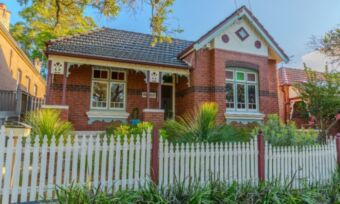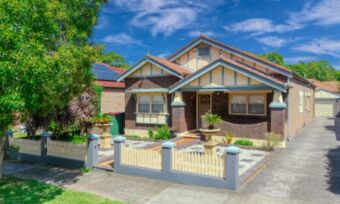How to find and choose a good mortgage broker
A mortgage broker can provide guidance to you when you’re looking for a home loan, and recommend options that may be suitable for your budget and situation – here are some tips on how to find a mortgage broker.

A mortgage broker can provide guidance to you when you’re looking for a home loan, and recommend options that may be suitable for your budget and situation – here are some tips on how to find a mortgage broker.
There are a large number of mortgage brokers on the market, all competing for your business, so it’s important to find one who can work with you effectively and help you find a suitable deal on a home loan. If you’re seeking a mortgage broker, here are some things to consider in order to find one who’ll meet your needs.
How do I choose a mortgage broker?
When choosing a mortgage broker, there are a number of important steps to take to make sure you have found one who’ll meet your needs. If you’d like to know more, you can read our list of the top 10 questions to ask a mortgage broker, but in brief, the most important things to know or do when choosing a mortgage broker include:
1. Do your own research into home loans
Before you take on a mortgage broker, it can be worthwhile to do your own research into available home loans on the market, based on the kind of loan you want. Brokers are bound by a duty to recommend loans that are ‘suitable’ for borrowers, but this does not necessarily mean they will find you the ‘best’ loans on the market – the best or most suitable loan for your needs could be one that isn’t on your broker’s panel. Because of this, doing your own research beforehand will potentially put you in a stronger position to assess whether your broker’s recommendations stack up with what else is on the market.
2. Ask if they’re licensed
Licensed mortgage brokers in Australia are bound by a legal duty to act in the best interests of their clients. This so-called ‘best interests duty’ exists to minimise any potential conflicts of interest when brokers are giving their customers credit advice. It is therefore important to find out if the broker you’re dealing with is licensed. We give some tips on how to do that later in this article.
3. Ask how many lenders they deal with
Mortgage brokers typically deal with a panel of lenders, most or all of whom will have different home loan products available. While there is no hard and fast rule about how large a panel should be, a broker who works with a large number of lenders will potentially have more options to choose from. Even if a lender has a large panel, though, they may still favour a small number of banks, so it can also be worth asking them where they typically send their business, and what proportion of their business goes to any particular lender.
4. Ask about their fees and commissions
Some mortgage brokers in Australia may charge a fee to clients, but typically, most are primarily remunerated in the form of commissions and other perks from lenders. It may be important for your peace of mind to ask your broker how their commissions are structured and if certain lenders offer them more attractive commissions than others. If you’d like to know more, you can read our breakdown of how mortgage brokers’ fees and commissions work in Australia.
5. Ask about their ownership structure
While brokers are bound by a duty to act in your best interests, you may still want to find out about their ownership structure, as this may guide the recommendations they give you. For example, if a major bank or lender has an ownership stake in a mortgage broker, then that broker may try and direct your business towards that bank’s products. It may therefore be important to you to know that your broker is independent.
How do I find a good mortgage broker in Australia?
A first step when choosing a good mortgage broker is to make sure they are licensed to give credit advice. Licensed mortgage brokers are bound by certain statutory duties, including a duty to act in the best interests of clients when recommending home loan products. This statutory best interests duty was put in place in 2020 to avoid conflicts of interest, and make sure that mortgage brokers conduct their business with customers in an ethical way.
If you wish to know whether a broker is licensed, you can ask them directly, or you can contact a professional body to make enquiries. The Finance Brokers Association of Australia Limited (FBAA) and the Mortgage & Finance Association of Australia (MFAA) both keep lists of brokers, so you can enquire with them to find out if a broker is licensed, or even ask them for help connecting you with one who is. In addition, Moneysmart suggests making sure the broker is licensed to give you home loan advice by checking regulator ASIC’s credit licensee and credit representative registers online.
Other initial filtering considerations might include the location of a broker’s office, as it may potentially be handy to work with someone local if you need to sign documents in person. Likewise, when making your initial inquiries, it could be useful to inquire if a broker works mainly with a particular kind of buyer – for example, investors, refinancers or first home buyers. This could help you in finding a broker who will meet your particular needs.
When looking for a good mortgage broker, it might also pay to ask family and friends for recommendations if they have found their own home loans through a broker. They may be able to recommend someone, or conversely, tell you if they have had a negative experience.
How do mortgage brokers get paid?
Mortgage brokers in Australia may charge a fee to clients, but the most common way that they earn money is by commissions from lenders. A mortgage broker might get paid an upfront commission by a bank or lender for signing a customer up for a mortgage, and the amount of this commission will vary depending on the lender. According to Moneysmart, some brokers get paid a standard fee irrespective of which loan they recommend, while some may command a higher fee for recommending certain loans.
Mortgage brokers typically do not do business with every lender on the market – they may only do business with a select few. You may therefore want to ask a broker how many lenders they work with before you engage their services.
Is it easier to get a mortgage through a broker?
While it may not necessarily be ‘easier’ to find a home loan through a broker, because your own financial circumstances will still determine whether or not you are approved, one potential advantage of working with one is convenience. This convenience could come from a mortgage broker’s ability to assess your financial situation and borrowing capacity and help you navigate the application process, potentially saving you some time along the way.
It’s likely that a good mortgage broker will have a large panel of lenders to work with, and some knowledge of the particular types of home loans on the market that might suit your needs, meaning they might sometimes be able to recommend one to you that you wouldn’t have found yourself. All of this could potentially be helpful, especially if you have never applied for a home loan before.
Keep in mind, though, that while a mortgage broker can offer convenience, they will not have access to every home loan on the market. There may be better deals out there than what a broker can recommend, and this is why it can still pay to do your own research.
Likewise, using a broker can mean making more decisions, as you will need to choose both a broker to work with, and then a home loan provider once the broker has made their recommendations. If you wish to cut out the middle-man, so to speak, you might choose to forego a broker and instead just research and apply for a home loan yourself.
Should you shop around for a mortgage broker?
A home loan is a major financial commitment, so it makes sense that you would want to get the best deal possible. If you choose to go through a mortgage broker, then it can also make sense to shop around. You can research and even meet with a few mortgage brokers to get a sense of things like the size of their panel, how their commissions are structured and whether they are owned or part-owned by a major bank or other lender. Even if you shop around and compare various brokers to find the one you’re most satisfied with, it is still advisable to do research of your own into the kind of home loan you want, to make sure your broker’s recommendations line up with this.
What can you do if you’re not happy with your mortgage broker?
The Australian government’s Moneysmart advises that if you are not happy with your mortgage broker, whether your complaint is with the quality of advice you’ve received or fees you’ve been charged, a good first step is to talk directly with your broker and attempt to resolve the problem. If this does not work, you may then wish to make a complaint in writing, and if you still do not get a resolution to your satisfaction, you can pursue a complaint with the Australian Financial Complaints Authority.
This article was reviewed by our Editor-in-Chief Nina Rinella before it was updated, as part of our fact-checking process.

Alasdair Duncan is Canstar's Deputy Finance Editor, specialising in home loans, property and lifestyle topics. He has written more than 500 articles for Canstar and his work is widely referenced by other publishers and media outlets, including Yahoo Finance, The New Daily, The Motley Fool and Sky News. He has featured as a guest author for property website homely.com.au.
In his more than 15 years working in the media, Alasdair has written for a broad range of publications. Before joining Canstar, he was a News Editor at Pedestrian.TV, part of Australia’s leading youth media group. His work has also appeared on ABC News, Junkee, Rolling Stone, Kotaku, the Sydney Star Observer and The Brag. He has a Bachelor of Laws (Honours) and a Bachelor of Arts with a major in Journalism from the University of Queensland.
When he is not writing about finance for Canstar, Alasdair can probably be found at the beach with his two dogs or listening to podcasts about pop music. You can follow Alasdair on LinkedIn.
The comparison rate for all home loans and loans secured against real property are based on secured credit of $150,000 and a term of 25 years.
^WARNING: This comparison rate is true only for the examples given and may not include all fees and charges. Different terms, fees or other loan amounts might result in a different comparison rate.
 Owner occupied
Owner occupied
 10% min deposit
10% min deposit
 Redraw facility
Redraw facility
Try our Home Loans comparison tool to instantly compare Canstar expert rated options.
The comparison rate for all home loans and loans secured against real property are based on secured credit of $150,000 and a term of 25 years.
^WARNING: This comparison rate is true only for the examples given and may not include all fees and charges. Different terms, fees or other loan amounts might result in a different comparison rate.





